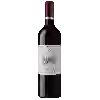
Château de la Haute LibardeCôtes de Bourg Blanc
This wine generally goes well with pork, vegetarian or poultry.
Food and wine pairings with Côtes de Bourg Blanc
Pairings that work perfectly with Côtes de Bourg Blanc
Original food and wine pairings with Côtes de Bourg Blanc
The Côtes de Bourg Blanc of Château de la Haute Libarde matches generally quite well with dishes of pork, vegetarian or poultry such as recipes of savoyard pizza (cream base), quiche without pastry, courgette and blue cheese or basque chicken with chorizo.
Details and technical informations about Château de la Haute Libarde's Côtes de Bourg Blanc.
Discover the grape variety: Négret Canourgue
Originating very certainly from the high valley of the Tarn aveyronnaise and lozérienne. It was confused for a long time with Abouriou, and as a result it still exchanges, wrongly, a few synonyms. It is very little multiplied, almost unknown in the other French wine regions.
Informations about the Château de la Haute Libarde
The Château de la Haute Libarde is one of of the world's great estates. It offers 2 wines for sale in the of Côtes de Bourg to come and discover on site or to buy online.
The wine region of Côtes de Bourg
The wine region of Côtes de Bourg is located in the region of Côtes de Bordeaux of Bordeaux of France. Wineries and vineyards like the Domaine Roc de Cambes or the Château Tayac produce mainly wines red and white. The most planted grape varieties in the region of Côtes de Bourg are Merlot, Cabernet-Sauvignon and Cabernet franc, they are then used in wines in blends or as a single variety. On the nose of Côtes de Bourg often reveals types of flavors of oak, sweet tobacco or pineapple and sometimes also flavors of cigar, ripe blackberries or bell pepper.
The wine region of Bordeaux
Bordeaux, in southwestern France, is one of the most famous, prestigious and prolific wine regions in the world. The majority of Bordeaux wines (nearly 90% of the production Volume) are the Dry, medium and Full-bodied red Bordeaux blends for which it is famous. The finest (and most expensive) are the wines of the great châteaux of Haut-Médoc and the right bank appellations of Saint-Émilion and Pomerol. The former focuses (at the highest level) on Cabernet Sauvignon, the latter on Merlot.
The word of the wine: Clairet
Strong rosé wine reminiscent of a light red.










